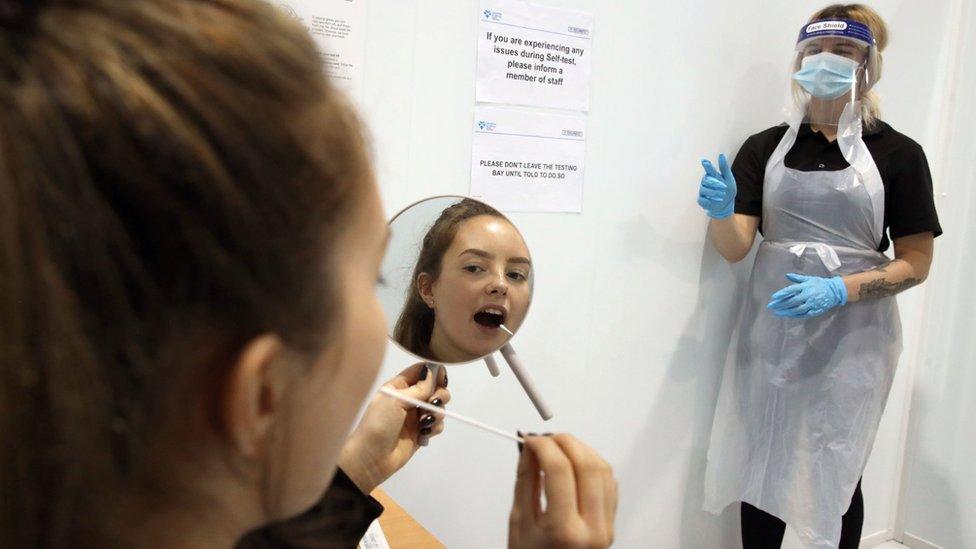Scotland's Covid contact tracing staff lacked training - watchdog
- Published
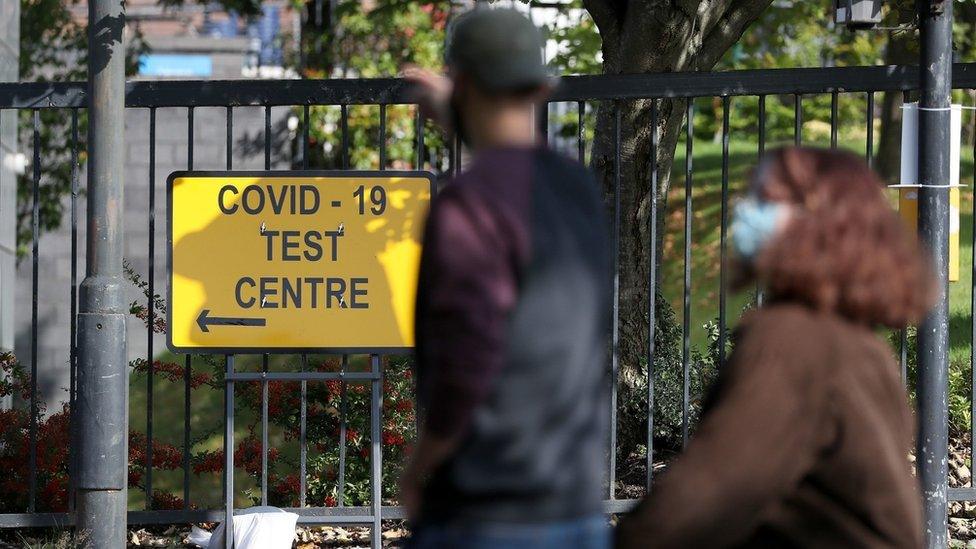
Contact tracing teams were facing unprecedented demand at the time of the whistleblowing complaint in June last year
A public standards watchdog has upheld concerns that Scotland's contact tracers did not have enough training to give correct advice to the public.
Callers to Scotland's Covid helpline faced a "greater risk" of getting the wrong advice, the Independent National Whistleblowing Officer has ruled.
This was partly because fewer checks for mistakes were made during surges of the virus last year.
NHS Scotland said it had since made improvements to the service.
Concerns about the contract tracing system were raised by a worker on the Covid advice line run by NHS National Services Scotland (NSS) last June.
The anonymous complaint claimed insufficient training and information meant contact tracing staff sometimes gave out incorrect and outdated advice, and that quality assurance measures were not up to scratch.
It came at a time when a surge in Covid infections meant Scotland's contact tracing system was "straining" and there was a shift to focusing on more complex, high-risk cases.
A report by the Independent National Whistleblowing Officer (INWO) has upheld the complaint that staff did not have sufficient training, and access to sufficient information to provide correct information to the public.
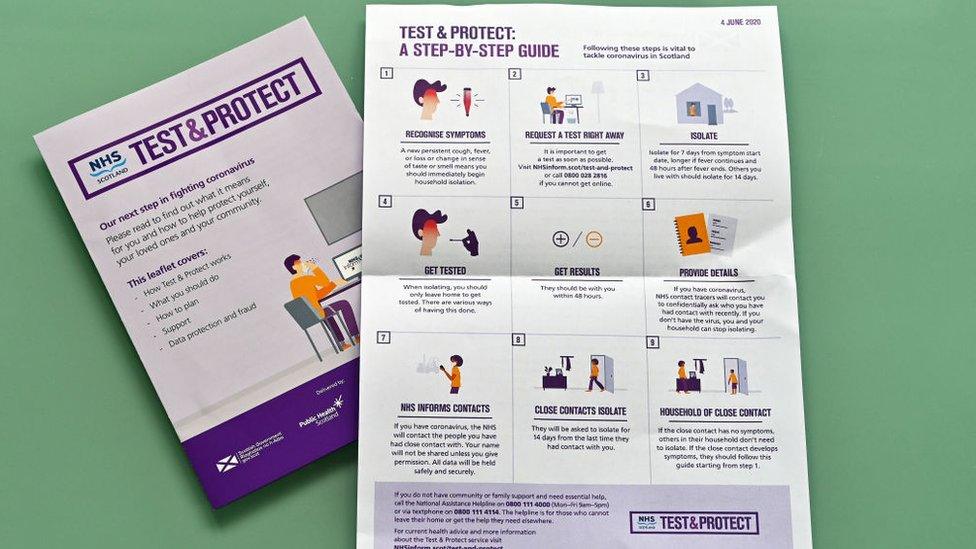
It ruled: "There is reason to believe there were greater risks of callers receiving incorrect information about exposure and isolation dates at the time that [the complainant] raised their concern."
It added that this was because of "reduced quality control, rotation of staff, difficulties in communicating updates and some staff being unable to access relevant training".
A survey of 159 NSS call centre staff in June last year found some felt they "did not have sufficient time and resources to manage their training and knowledge" when on calls to the public.
In addition, it was found that moving staff between different call centre services, such as booking vaccine appointments, was adding to this pressure.
The NSS told the INWO that during surges of Covid infections "the number of cases reviewed was limited by the availability of quality control staff" and a "proportionate approach had to be taken to prioritise higher risk cases".
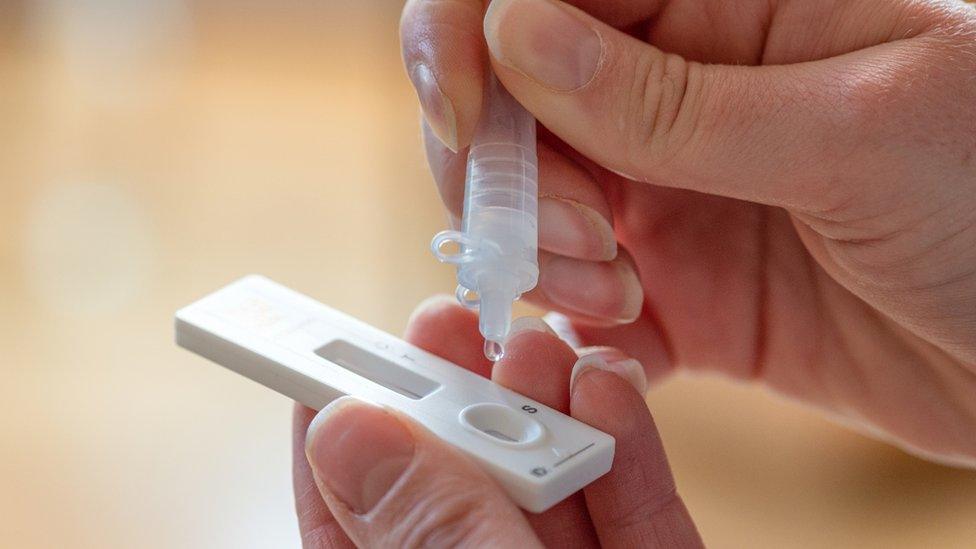
One witness said that one in 10 low risk cases were being checked for mistakes in June 2021.
A spot check was undertaken in 40 cases where the date of exposure to Covid had been changed.
It found 91% had complied with the agreed call centre scripts but that a "relatively high number" (25% of all cases) had the exposure date changed after the initial call by a quality control or supervisor check.
The INWO concluded that the "normal controls in place to minimise and rectify errors were not fully applied".
The investigation relates to the period prior to June 2021 when concerns were first raised with NSS.
The health board said changes to working practices, information sharing, training and quality assurance have been made since then.
Mary Morgan, chief executive of NHS NSS, said: "Contact centre staff were provided with a range of training and ongoing support to ensure they were able to undertake their duties safely and effectively.
"Neither NSS's internal investigation nor the investigation conducted by INWO found examples of members of the public who had received incorrect public health advice."
She added that at the time of the 2021 complaint, "the national call centre was aware of the need to further develop the training at this time to meet the changing needs of the service and had a plan in place to do so".
Related topics
- Published2 July 2021
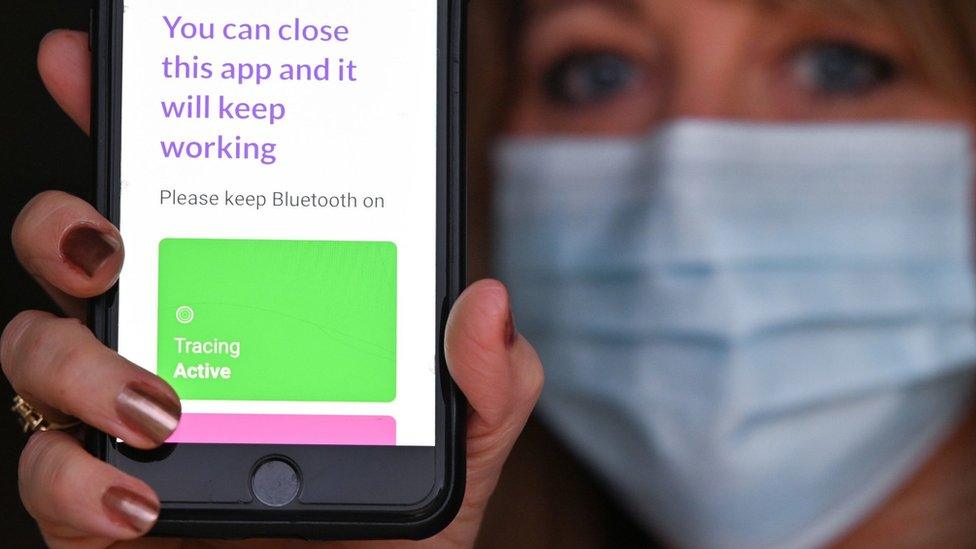
- Published3 July 2021
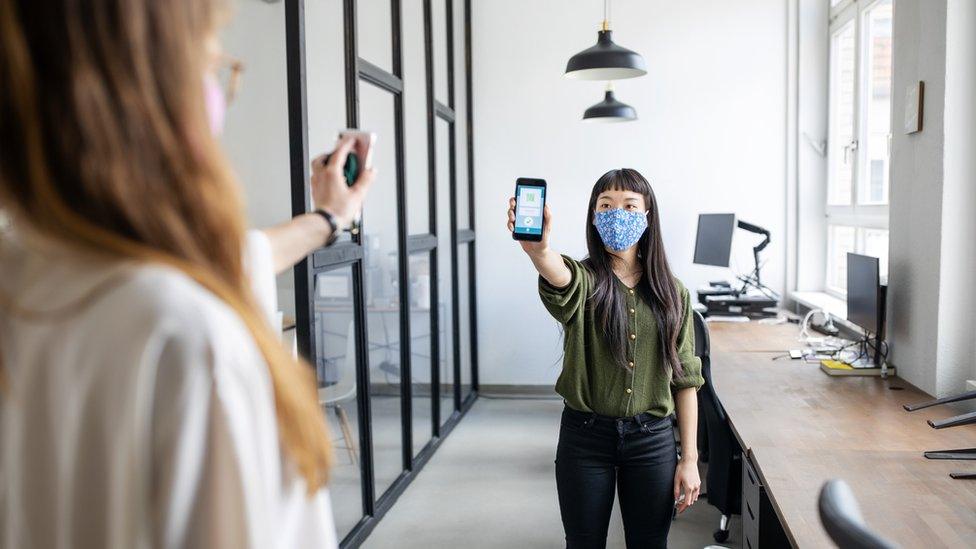
- Published1 July 2021
